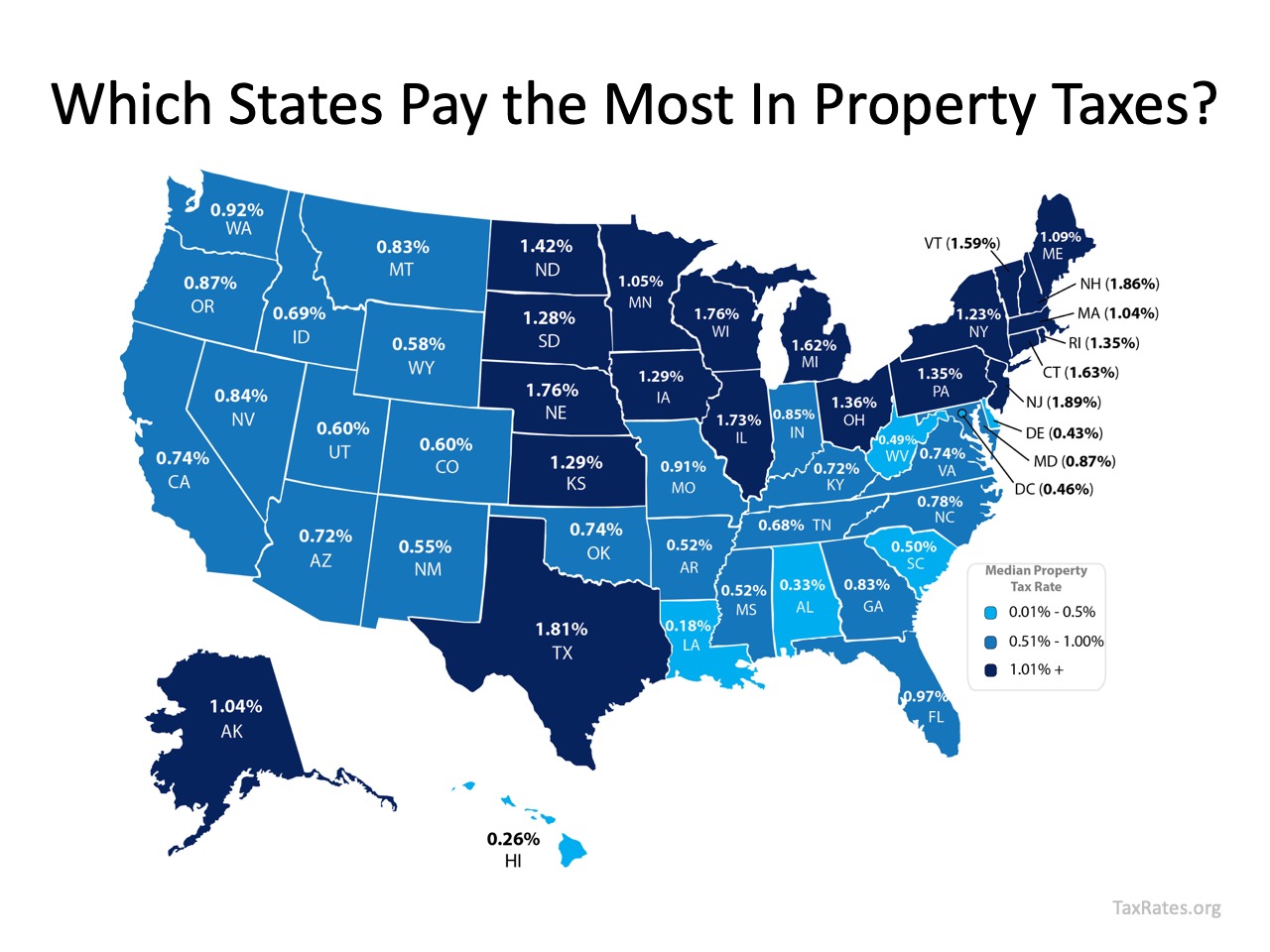
“Depending on where you live, property taxes can have a big impact on your monthly payment.”
When buying a home, taxes are one of the expenses that can make a significant difference in your monthly payment. Do you know how much you might pay for property taxes in your state or local area?
When applying for a mortgage, you’ll see one of two acronyms in your paperwork – P&I or PITI – depending on how you’re including your taxes in your mortgage payment.
P&I stands for Principal and Interest, and both are parts of your monthly mortgage payment that go toward paying off the loan you borrow. PITI stands for Principal, Interest, Taxes, and Insurance, and they’re all important factors to calculate when you want to determine exactly what the cost of your new home will be.
TaxRates.org defines property taxes as,
“A municipal tax levied by counties, cities, or special tax districts on most types of real estate – including homes, businesses, and parcels of land. The amount of property tax owed depends on the appraised fair market value of the property, as determined by the property tax assessor.”
This organization also provides a map showing annual property taxes by state (including the District of Columbia), from lowest to highest, as a percentage of median home value. The top 5 states with the highest median property taxes are New Jersey, New Hampshire, Texas, Nebraska, and Wisconsin. The states with the lowest median property taxes are Louisiana, Hawaii, Alabama, and Delaware, followed by the District of Columbia.
The top 5 states with the highest median property taxes are New Jersey, New Hampshire, Texas, Nebraska, and Wisconsin. The states with the lowest median property taxes are Louisiana, Hawaii, Alabama, and Delaware, followed by the District of Columbia.
Bottom Line
Depending on where you live, property taxes can have a big impact on your monthly payment. To make sure your estimated taxes will fall within your desired budget, let’s get together today to determine how the neighborhood or area you choose can make a difference in your overall costs when buying a home.
To view original article, visit Keeping Current Matters.
One Homebuying Step You Don’t Want To Skip: Pre-Approval
A preapproval means you’ve cleared the hurdles necessary to be approved for a mortgage up to a certain dollar amount.
The Truth About Credit Scores and Buying a Home
You don’t need perfect credit to buy a home, but your score can have an impact on your loan options and the terms you’re able to get.
What To Save for When Buying a Home
Planning ahead and understanding the costs you may encounter upfront can make buying a home less intimidating and allow you to take control of the process.
Expert Forecasts for the 2025 Housing Market
If you want to find out what’s happening where you live, you need to lean on an agent who can explain the latest trends.
Time in the Market Beats Timing the Market
If you want to buy a home and you’re able to make the numbers work, doing it sooner rather than later is usually worth it.
New Year, New Home: How to Make It Happen in 2025
Buying or selling is a big milestone and a great goal for this year. With the right expert, you’ll feel confident and ready to take on the market.







.jpg )



